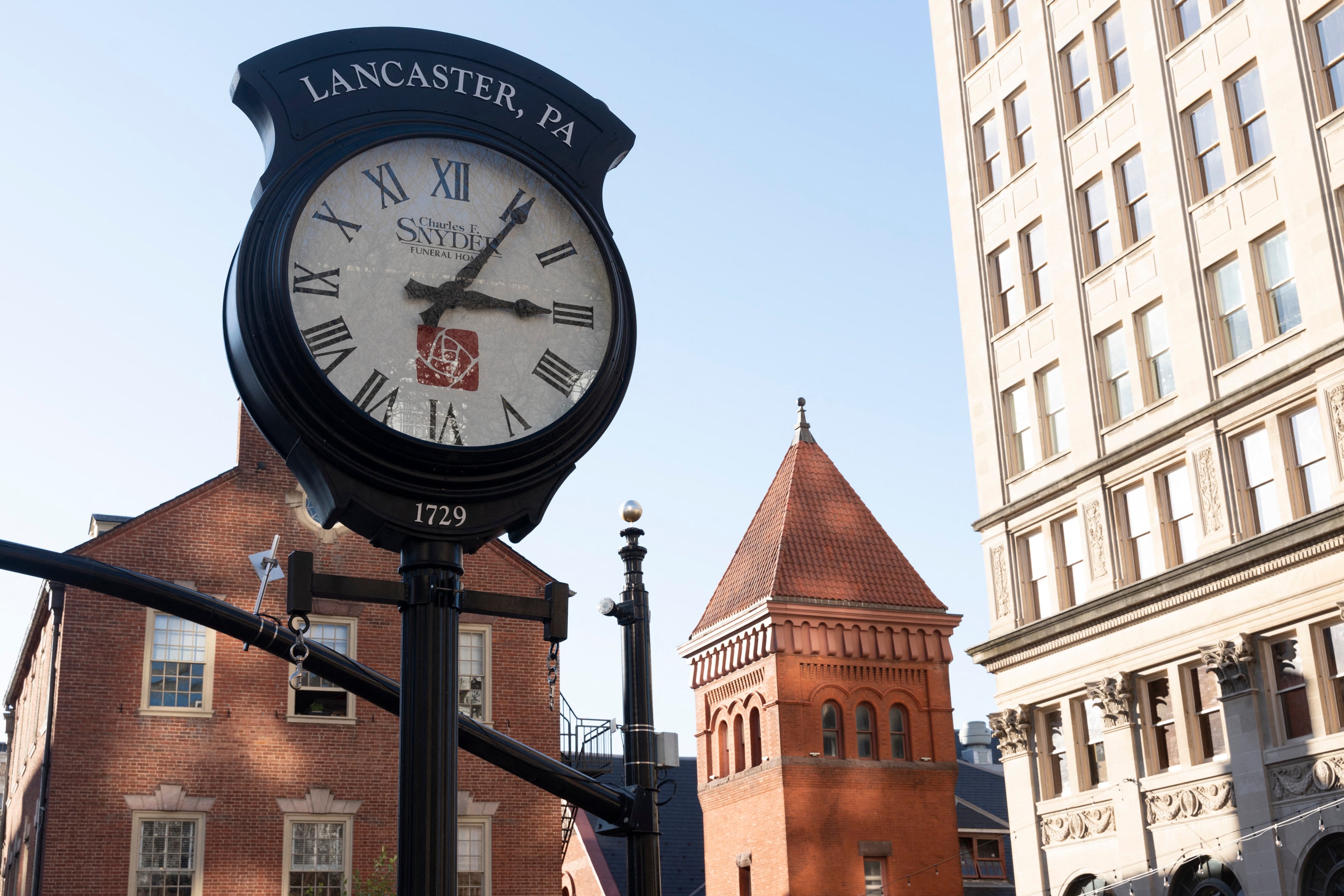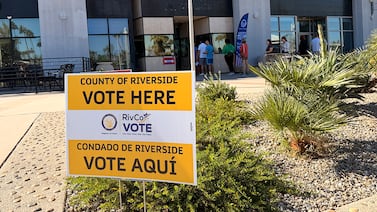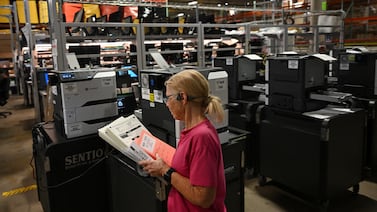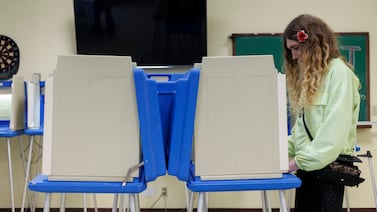Votebeat is a nonprofit news organization reporting on voting access and election administration across the U.S. Sign up for Votebeat Pennsylvania’s free newsletter here.
Lancaster County officials said Friday they identified an undisclosed number of voter registration applications as fraudulent, and the district attorney has launched a criminal investigation.
The three county commissioners on the board of elections, along with the county’s district attorney, said a number of suspicious registrations were delivered to the county near the Oct. 21 voter registration deadline.
District Attorney Heather Adams, a Republican, said the county elections director notified her that approximately 2,500 applications delivered near the deadline raised red flags. Adams said her detectives immediately started looking into the applications and finding signs of fraud.
Adams said elections staff found the applications suspicious because staff noticed numerous applications had the same handwriting, and were filled out on the same day with suspicious signatures. Some of the applications were for voters who were previously registered, and the signatures on file did not match the ones on the applications.
None of the applications identified as fraudulent were processed or resulted in a voter being added to the voter rolls or receiving a ballot, county officials stressed.
It is not clear precisely how many questionable registrations officials discovered. They said roughly 2,500 applications were delivered to the county, but only some of them have been flagged so far as suspicious and referred to the district attorney. Adams said roughly 60% of the applications her detectives have reviewed so far were allegedly fraudulent, while others were legitimate. Adams said the applications appeared to come from paid canvassers as part of an organized registration effort. She did not name the organization or organizations involved.
Upon investigating, Adams’ detectives discovered inaccurate addresses, false personal identification information, and fake names. Some applications also had names that did not match the provided Social Security number. Detectives found some applications that contained correct information, but when investigators contacted the people named on the application, they said they did not request or complete the application in question.
Adams added that two other counties had received similar suspicious applications, but did not name the counties or say how many potentially fraudulent applications they may have received.
Paid canvassers, working for both political parties, do occasionally cause problems, said Kyle Miller, a policy advocate with the nonpartisan group Protect Democracy.
“They are perversely incentivized to collect signatures,” he said.
Forrest Lehman, a longtime election director in Lycoming County, said these groups often do “shoddy” work and should be regulated more closely. He said one such group once dropped off a large volume of registration applications that all had checked the box indicating they had no driver’s license or Social Security number, which raised red flags for him.
“That’s my other observation from this, is that counties absolutely are looking at these things coming in,” Lehman said. “That means we have processes that work.”
“Anyone who tries [casting a fraudulent ballot], we’re going to find you,” said Lancaster County Commissioner Ray D’Agostino, who chairs the board of elections. He said the county is also cross-checking the fraudulent voter registration applications against applications for mail ballots.
The enforcement effort shows “how safe and secure the election system is,” Commissioner Alice Yoder said. “The election team caught this.”
In a statement, the Pennsylvania Department of State echoed that message.
“As the county’s efforts show, multiple safeguards exist to ensure the integrity of our elections, and Pennsylvanians can have confidence that this November’s election will be safe, secure, free, and fair,” spokesperson Geoff Morrow said.
The announcement comes after Lancaster County was accused this week of preventing Franklin & Marshall College students from registering to vote, prompting Secretary of the Commonwealth Al Schmidt to send the county a sternly worded letter.
Carter Walker is a reporter for Votebeat in partnership with Spotlight PA. Contact Carter at cwalker@votebeat.org.






